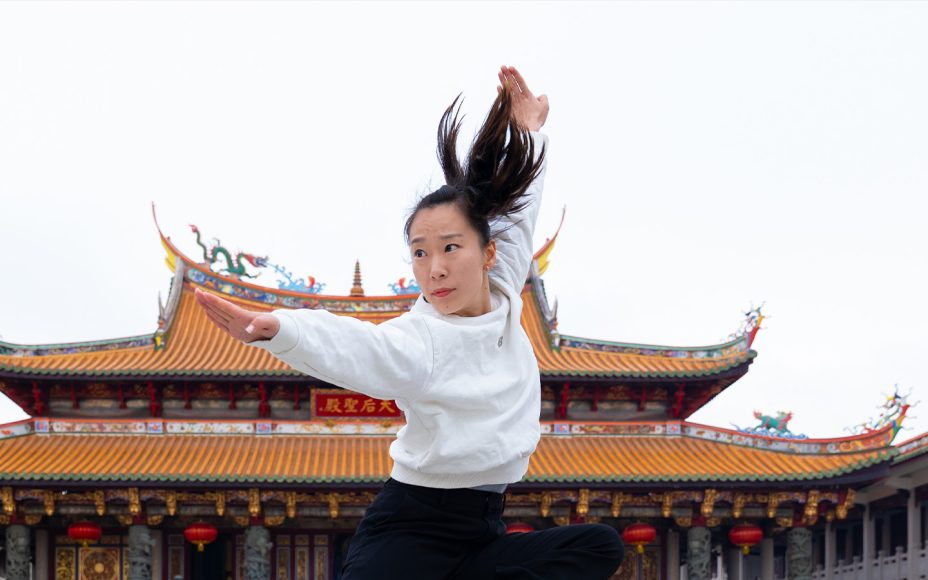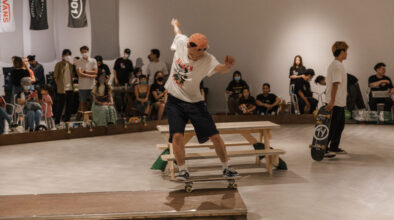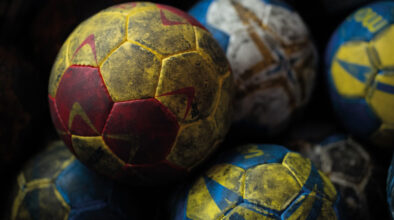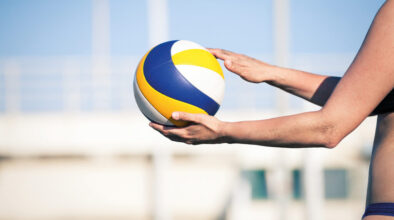Wushu has a long history in China, where the martial art is performed in both exhibition and full-contact formats. Its popularity in the mainland is mirrored in Macao. The Special Administrative Region (SAR) has seen increasing success in regional and even international wushu tournaments in recent years. In fact, wushu has earned Macao more medals than any other sport. At the 2023 World Wushu Championships in Dallas, US, the SAR won a total of 11 medals – five gold, two silver and four bronze – just four less than the mainland.
One of those gold medallists was Li Yi, a 32-year-old champion who’s been training since she was a young child. She was born in Beijing and spent part of her childhood in Hebei before moving to Macao in 2010, under the government’s Talent Recruitment Programme. Li then studied at the Macau Polytechnic University and graduated with a master’s in sports and physical education.
Macao’s government recently honoured Li with a Silver Lotus medal, Macao’s third highest decoration after the Grand Lotus and Golden Lotus. It came in recognition of her outstanding contributions to the territory’s developing sports scene. “The medal has given me confidence and made me more determined to promote and pass down wushu to the next generation,” she says.
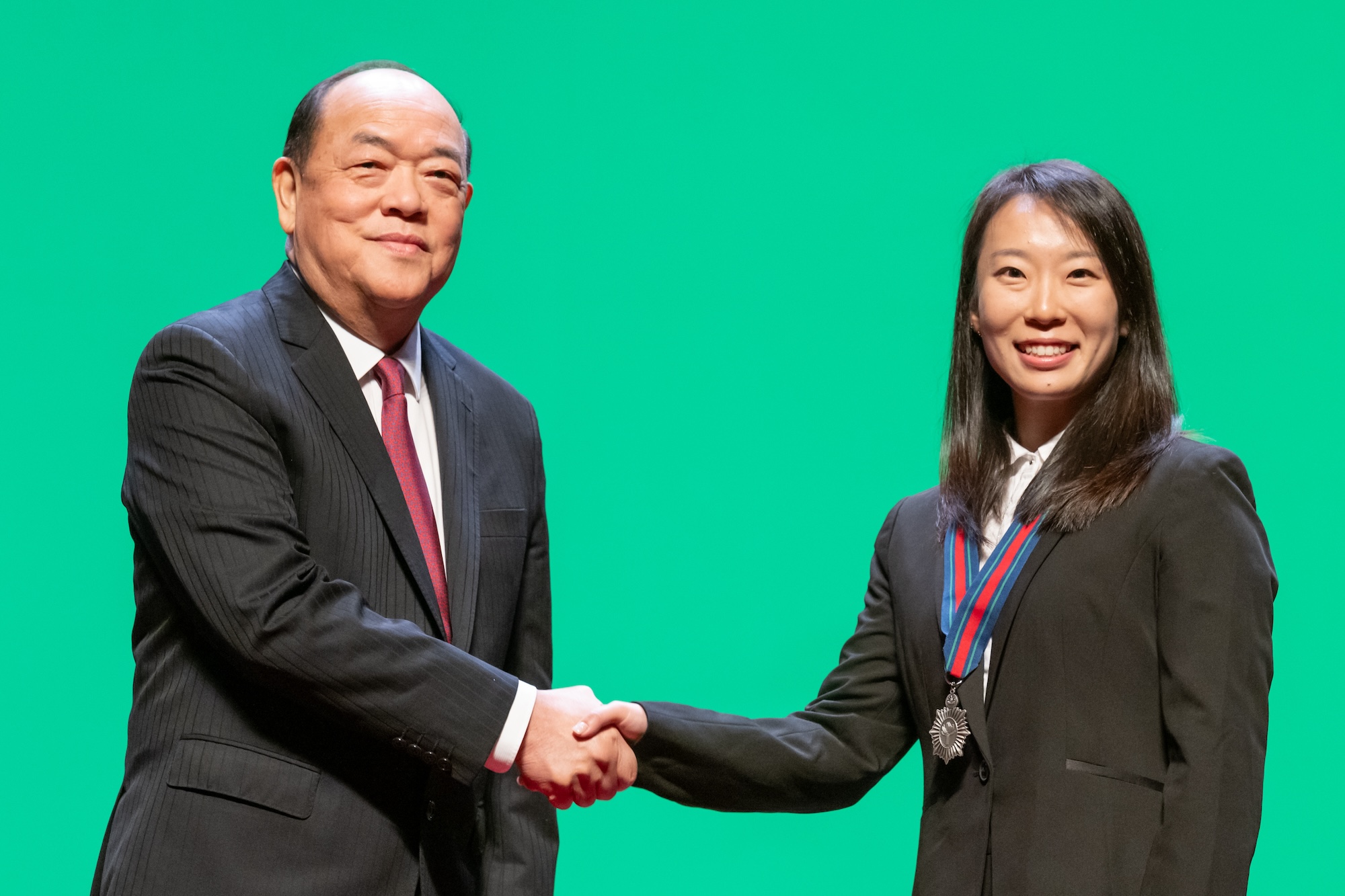
Other wushu athletes were also included in last year’s honours list. Kuok Kin Hang and Cai Feilong, who secured silver medals in sanda and karate at the 19th Asian Games in Hangzhou, received official Medals of Merits, along with the entire Macao men’s karate kata team.
A short history of wushu
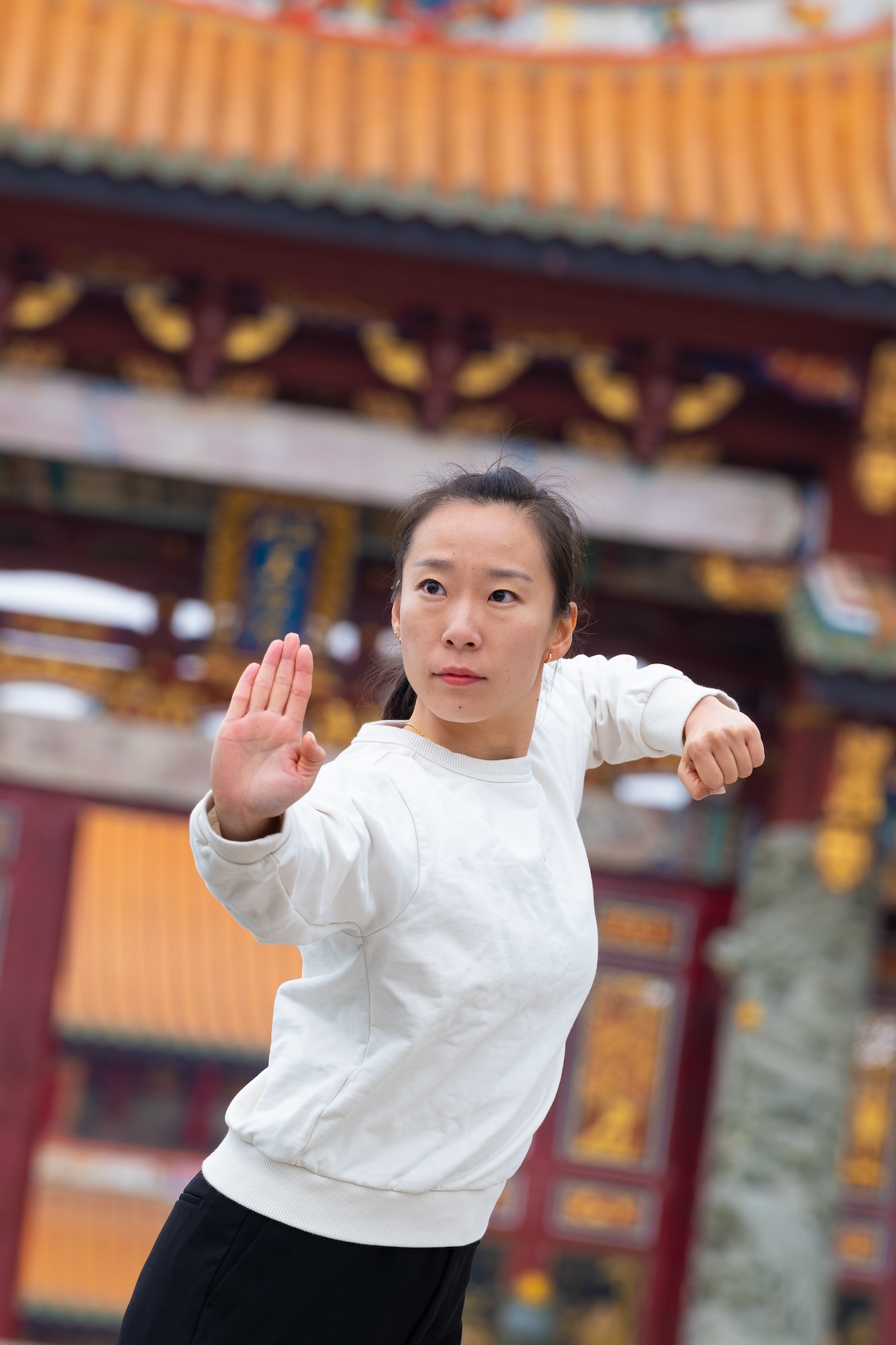
Chinese martial arts have ancient origins that can be traced back to the Bronze Age. The fighting techniques began in self-defence, to be used against fellow humans as well as animals. By the Warring States period (475-221 BC), it was common for people from across society to practise martial arts for self-defence, health benefits and entertainment.
Distinct styles and schools emerged over time, during different dynasties. These were often passed down through families or through monastic traditions. Shaolin kung fu, for example, developed at the Shaolin Temple in Henan Province from around the 5th century. The Buddhist monastery remains a centre for this iconic, animal-inspired martial art that includes techniques ranging from extreme kicks to one titled ‘horse stance’.
The first Chinese National Wushu Games was held in Shanghai in 1923. Then, in 1936, a delegation of Chinese athletes showcased their home-grown martial arts at the Berlin Summer Olympics. After the founding of the People’s Republic of China in 1949, the government worked to standardise and modernise traditional wushu – effectively transforming its practice into a sport. In 1985, the first International Invitational Wushu Tournament took place in Xi’an, China. The International Wushu Federation was established five years later, and the World Wushu Championships have been held biennially since 1991.
Wushu was added to the Asian Games in 1990, the same year Macao first participated in the quadrennial event. That year, Macao won a single medal, a bronze in the men’s nanquan wushu event. Twenty years later, the renowned Macao wushu athlete Jia Rui earned the territory its first gold medal at an Asian Games.
As a sport, wushu has two main formats. Taolu is more like performance art; it uses precisely choreographed routines and is often performed solo. Sanda, meanwhile, is a full-contact act of combat. Each format is performed either barehanded, with a short, spear-like weapon, or with a long weapon (one of various types of sword). These categories are further divided into a multitude of styles, including nanquan.
An 8-year-old’s journey
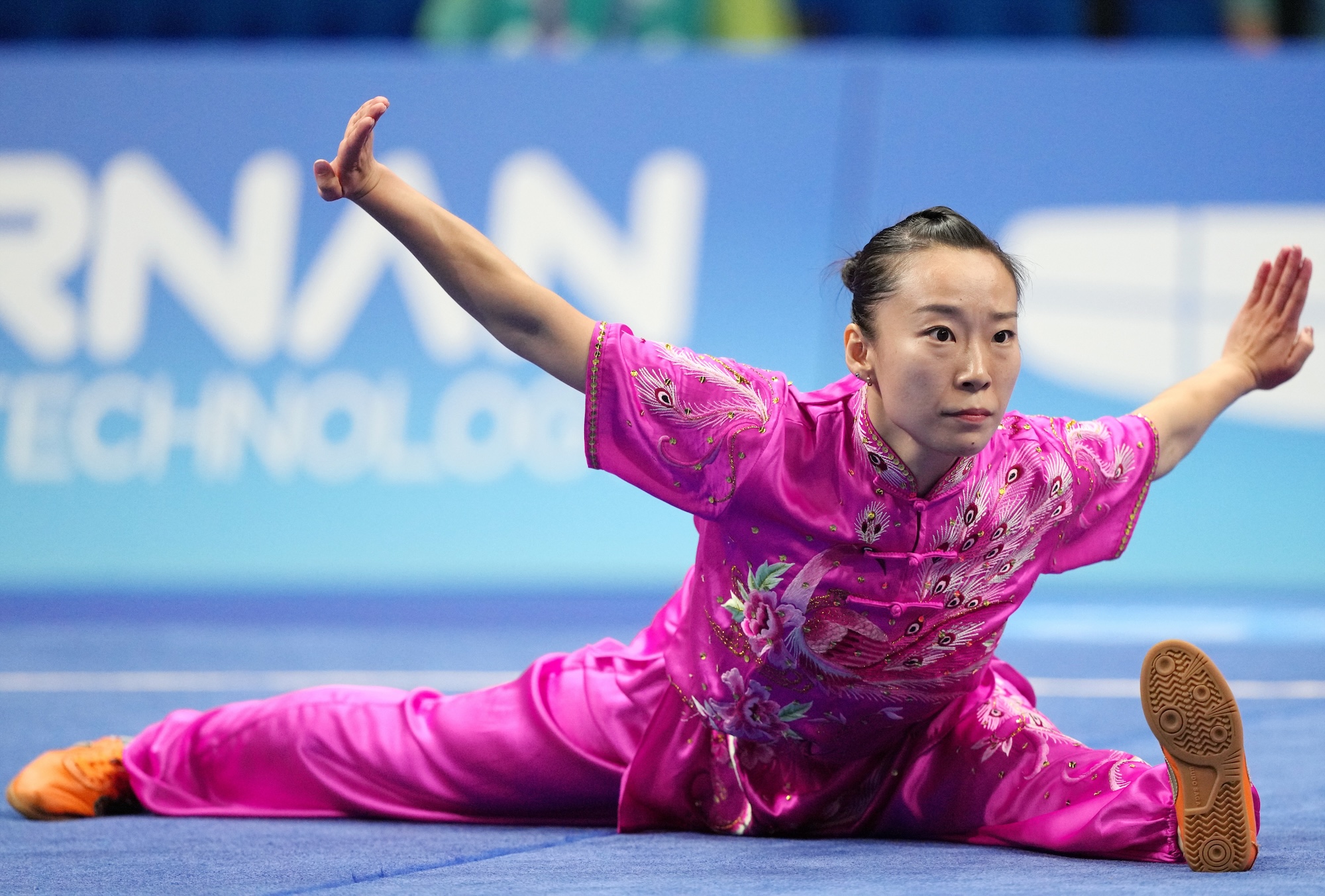
Li currently competes in three different taolu styles of wushu. Changquan, which translates to ‘long fist’, is a barehanded and acrobatic martial art that tests an athlete’s flexibility. In jianshu, she gracefully wields a traditional Chinese sword. When practising qiangshu, Li demonstrates offensive and defensive motions with a spear.
She was first scouted by a wushu coach named Chunyan Jin at just 8 years old, when Jin was going from school to school and seeking out potential athletes. He’d put students through their paces, assessing how fast they could move, how high they could jump, and whether they had enough crucial flexibility.
While Li says she didn’t have any interest in wushu back then – “because I didn’t know what it was about” – Jin quickly identified her as a talent. The coach persistently called Li’s parents, enthusing over her potential and urging them to sign her up for classes. They eventually convinced Li to give the sport a shot. Today, she thanks her parents for setting her on a path that’s been tough, but highly rewarding.
Li remembers walking into her first training session and feeling confused. All she could think to do was mimic the senior apprentices. To her surprise, the moves came easily. Her parents were very encouraging, especially when her own motivation lagged. “They told me once you decide to do something, you should persevere,” Li says. “And after you choose your path, no matter how difficult it will be, you should not give up easily.”
Jianshu was the first wushu style Li chose to specialise in. “When the coach asked me which weapon I wanted to choose, I said the jian [a traditional sword], after watching the senior apprentices,” she says. “The movements were so smooth and beautiful, and it looked so cool!”
Li quickly progressed to competing in large-scale competitions, including the 8th Asian Wushu Championships in Vietnam, just two years after she started training. “That was the competition that gave me a lot of confidence,” she says.
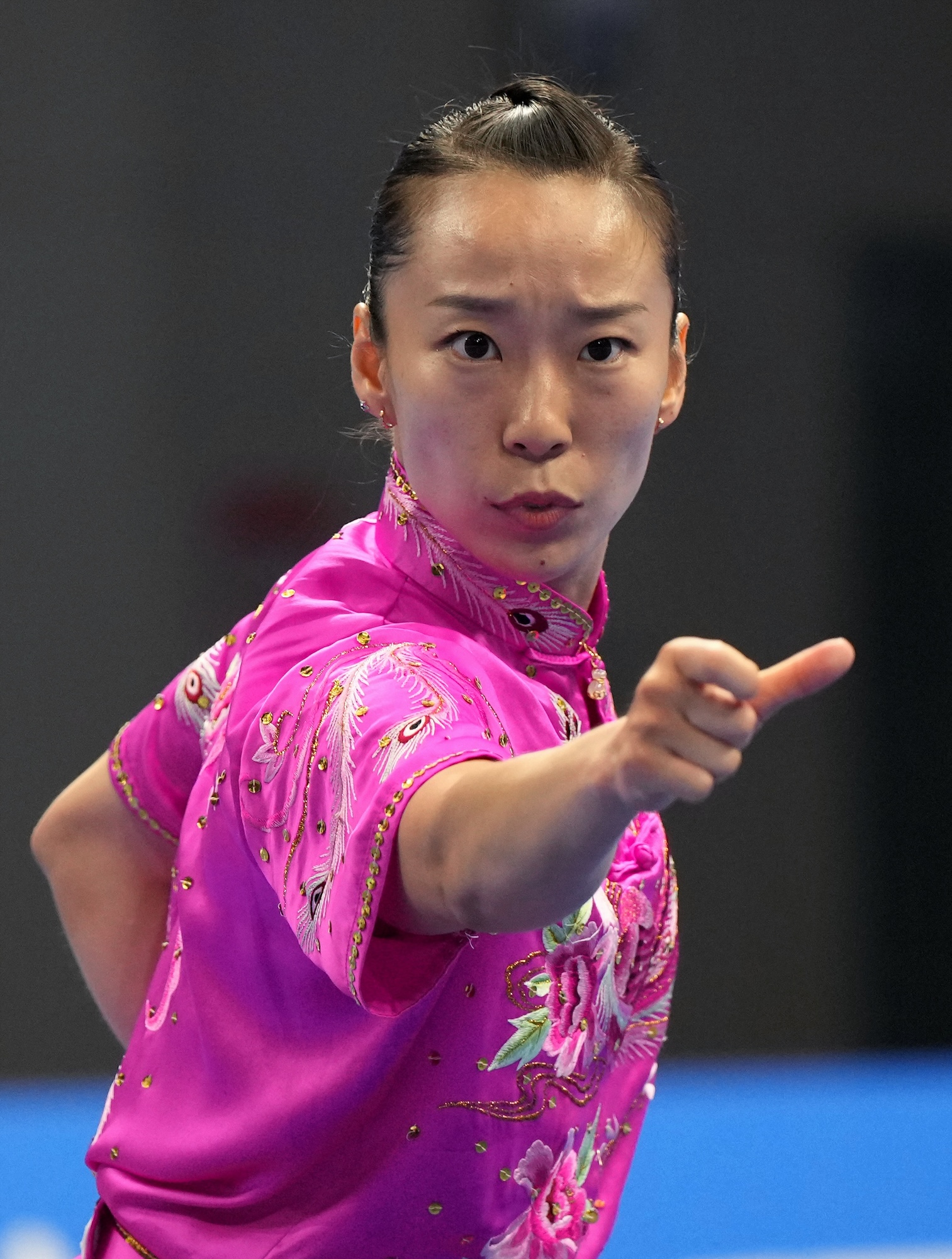
The athlete now has a slew of medals from major wushu events from around the world. And there are more golds than silvers or bronzes in her collection. Last year, Li won three golds and one bronze medal. Of them, Li says her gold in the women’s changquan at the 19th Asian Games “stands out for sure!” Li was the first woman from Macao to earn a coveted gold medal at the highly prestigious competition.
The lead up to last year’s Asian Games was unusual, Li says. They were supposed to take place in 2022 but got postponed due to the Covid-19 pandemic (that’s why, though they happened in 2023, they are still referred to as the 2022 Asian Games). Li says it was particularly challenging working her full-time job as a physical education teacher while keeping up with a demanding training regime during the pandemic, so she had to build coping strategies into her daily routine.
“I kept encouraging myself by talking positively, writing posts on my social media and counting down the days to the Games,” she says. Rest is also key for athletes, something Li is well aware of. After work, instead of driving to her training centre, she would catch a bus and nap while on her way.
An unusual aspect of any Asian Games is that wushu athletes can only participate in one event, rather than the usual three or four. “That means you only have one chance,” Li says. She put a lot of thought into her decision to opt for changquan, a call she doesn’t regret. Li won Macao’s only gold out of six medals at the 19th Asian Games, beating Hong Kong’s Liu Xuxu by 0.03 points in the women’s category.
Wushu is a fast-developing sport in Macao
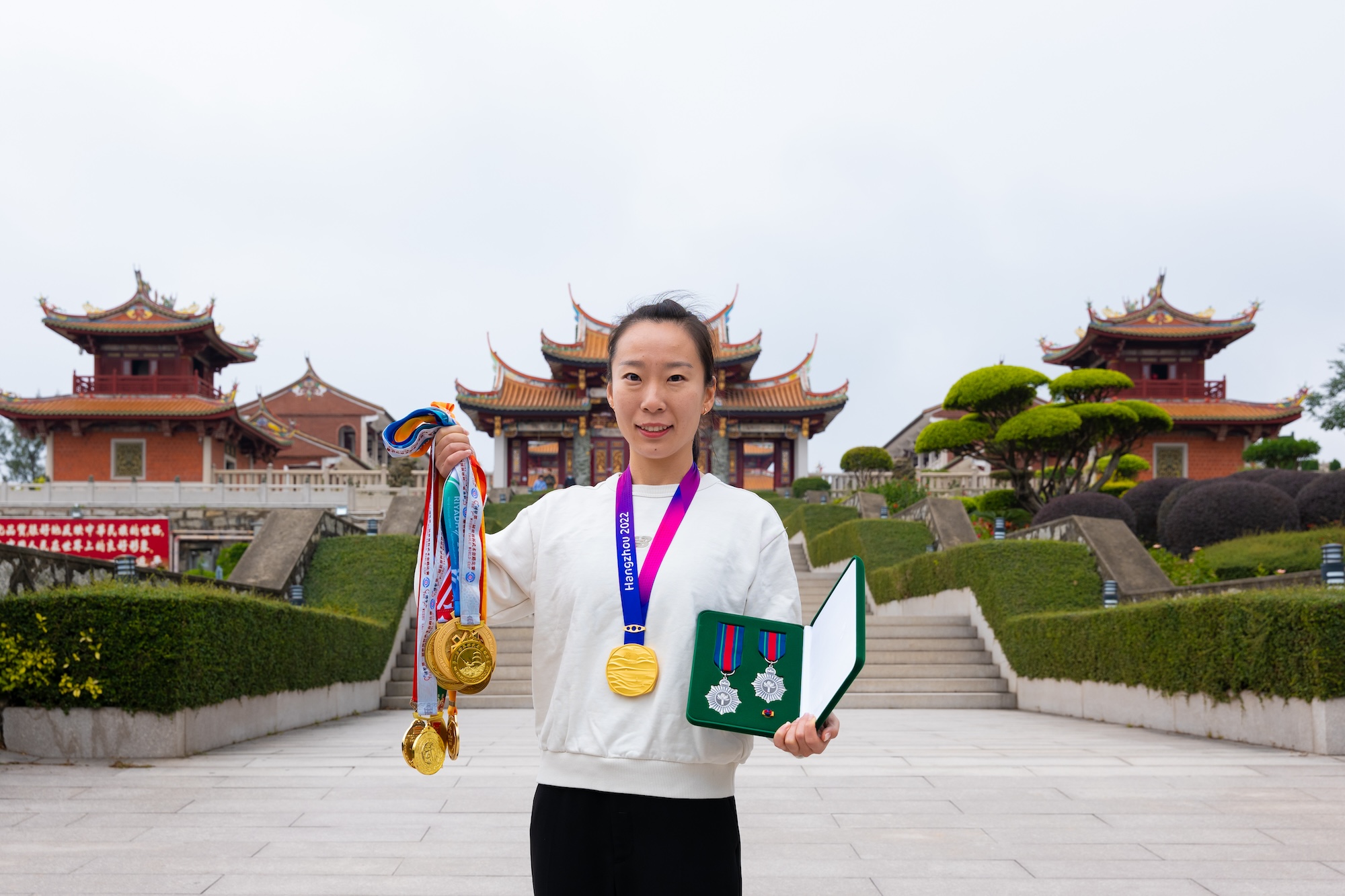
That wushu is gaining popularity in Macao comes as no surprise to Li, who insists that older practitioners who have nurtured the sport over decades are to thank. “I’m so lucky to be born in this generation, because our well-developed and beautiful wushu scene was built by the older generation,” she says.
The city is home to both facilities and people dedicated to wushu’s expansion. The government-built Athlete Training and Development Centre that opened in 2020, for instance, gives wushu practitioners easy access to the likes of high-quality training mats, physiotherapists and psychiatrists. The centre even houses a canteen and a dormitory.
In terms of people, Li offers her current coach and former team-mate, Iao Chon In, as an example of someone working hard to grow the sport. Li says that Iao gives his students a lot of freedom in their training. He’s also compassionate, she adds, frequently checking in to make sure everyone’s doing ok.
“With the Macao government’s support, wushu has become very approachable in the SAR – we have the Martial Arts Youth Academy and wushu is available as an extra curriculum in many schools,” Li continues. As a physical education teacher herself, Li is also involved in nurturing the next generation of wushu talents. Her school, Escola dos Moradores de Macau, recently won first place in an inter-school wushu competition. Li says she could not be more proud of the young people she sees achieving their goals in the sport she loves most.
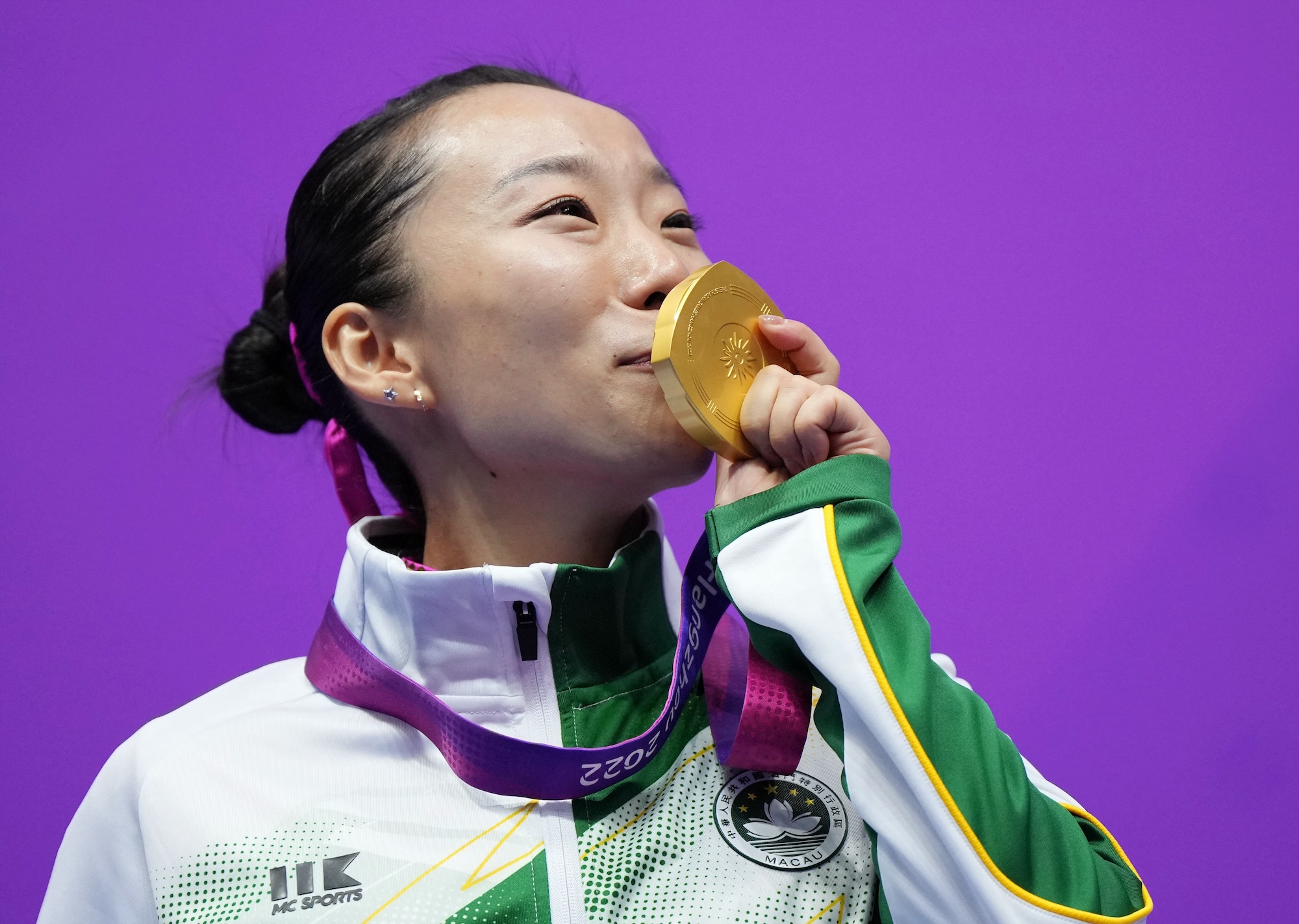
This year, Li plans to retire as a full-time athlete and focus on training Macao’s future wushu champions. Her advice to those interested in following in her footsteps? “You have to be strong-willed.” She says that’s the case for any sport, not just wushu. “Performing at such a high level consumes a big amount of strength and energy, which sometimes pushes you to your limit – it requires perseverance to keep it up,” she says. Li warns that results can take years, even decades to come to fruition. “But I would say good things take time and as long as you are hard-working and strong-willed, you will achieve your goals.”
